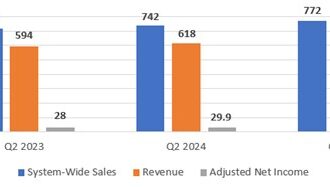The Canadian business landscape shifts into high gear this week with several pivotal developments poised to reshape economic trajectories across multiple sectors. From crucial earnings reports to policy announcements, the coming days will provide critical insights into Canada’s economic resilience amid global uncertainty.
Air Canada takes center stage Thursday when the airline reveals its third-quarter financial results. After navigating the turbulent skies of post-pandemic recovery, investors are watching closely to see if Canada’s largest carrier can maintain altitude amid persistent inflation and wavering consumer confidence. The results will offer a window into broader travel industry health and discretionary spending patterns as Canadians prioritize their expenses.
“The airline sector serves as a bellwether for consumer confidence and spending power,” notes industry analyst Martin Reynolds. “Air Canada’s performance could signal whether Canadians are tightening their belts or maintaining their appetite for travel despite economic pressures.”
Statistics Canada delivers its September inflation report Wednesday, a data point that could determine the Bank of Canada’s next move on interest rates. With recent months showing gradual cooling, economists anticipate inflation settling around 3.8%, still above the central bank’s 2% target. The food and housing components deserve particular scrutiny as everyday Canadians continue feeling the squeeze at grocery stores and in housing markets.
The commodities sector faces its own moment of truth as Teck Resources unveils quarterly performance Thursday. As a barometer for global demand in copper, zinc, and metallurgical coal, Teck’s results will provide valuable insights into international market conditions and resource pricing trends. With copper particularly vital to the green energy transition, any production or demand signals could reverberate through Canada’s resource economy.
Meanwhile, grocery giant Metro Inc. steps into the earnings spotlight Tuesday, offering a ground-level view of consumer spending habits and food inflation pressures. Following public scrutiny over grocery pricing practices, Metro’s margins and sales volumes will be dissected for evidence of changing consumer behaviors and corporate pricing strategies in essential goods.
The week concludes with Statistics Canada’s retail sales figures for August, completing a comprehensive picture of Canadian economic vitality. Recent months have shown consumers pulling back, with July retail sales dropping 0.3%. Analysts expect August data to reveal whether this represents a temporary pause or the beginning of a more pronounced spending retreat.
“Retail sales data forms the backbone of consumer sentiment analysis,” explains economist Diane Rousseau. “August numbers will tell us if Canadians are feeling the impact of higher interest rates and continued inflation in their day-to-day purchasing decisions.”
For business leaders navigating this complex environment, the week ahead offers crucial navigation points. From CO24 Business coverage to CO24 Breaking News updates, these economic indicators will shape strategic planning across industries ranging from transportation to consumer goods.
As global economic headwinds persist, Canadian businesses find themselves at a critical juncture where adaptation and foresight become paramount. The data points emerging this week won’t just influence financial markets—they’ll shape employment decisions, investment strategies, and consumer confidence heading into the final months of 2023. The question remains: will Canadian economic resilience hold, or are we witnessing the early stages of a more significant adjustment?























